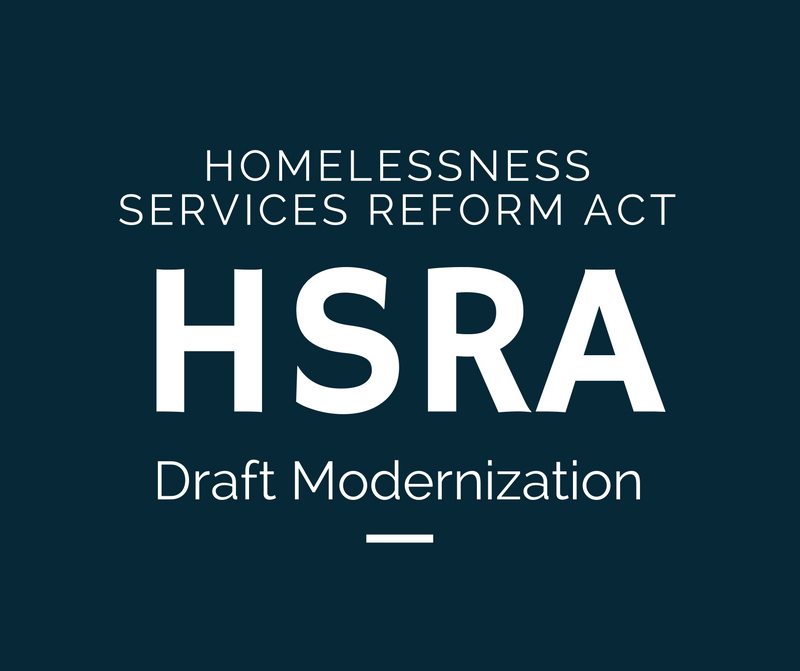On Wednesday, June 14, D.C. Council will open up the law that governs homeless services in Washington, D.C.
After 11 months and at least as many community feedback sessions, Mayor Muriel Bowser transmitted the proposed Homeless Services Reform Amendment Act of 2017 to Council Chairman Phil Mendelson.
The HSRA of 2005 was enacted after being crafted over several years by government, nonprofit and community leaders. It created the local Interagency Council on Homelessness and mandates that the ICH create and monitor progress on the city’s strategic plan to end homelessness. It governs policies such as at what point the District’s right to shelter is in play. It asserts what rights and responsibilities service providers have to their clients and similarly asserts what rights and responsibilities clients have when receiving services. Unlike the system the 2005 legislation was created to guide, today the HSRA often governs the rights of permanent housing programs and consumers.
Thus the 39-page act from 2005 has been amended twice, — in 2010 and again in 2013 — to modernize the legislation and improve the efficiency of D.C.’s response to people in crisis.
During the 2010 Fenty administration, the 4-page update centered around tightening what requirements someone seeking city services must fulfill to prove they are a District resident and qualify for services.
In 2013, the nine pages of definition updates from the Gray administration changed the scope of what premises service providers could enforce their policies on, and how to remove inefficiencies — like when a bed or unit had been obviously abandoned, but law required the unit be held for a certain period of time in case the client returned, while others that could use the spot wait without aid. One such clarification dealt with whether someone should no longer receive housing assistance if they refused the first two units they are offered.
Bowser’s 2017 proposal is only ten pages shy of the original law. Part of it was introduced as emergency legislation in 2016. D.C. Council reviewed and passed the Medical Respite Services Exemption Temporary Amendment Act of 2016 to address an immediate need and tabled the rest of the items until this complete package was introduced and could be discussed with full testimony and input from the community.
It is billed as aligning local requirements with those of the federal Homeless Emergency Assistance and Rapid Transition to Housing Act — including how funding is tracked and the definitions of who qualifies for what services. Another primary reason for the update is to reflect the switch from an emergency shelter system to one based more on a variety of housing solutions, in line with the ambitious Homeward D.C. 5-year plan created by the ICH.
For the past year, meeting attendees have praised the opportunity to codify in law some of the mayor’s more-benevolent practices, in case her eventual successor is not as concerned with helping the homeless community. Similarly, attendees have sounded alarm bells over propositions such as giving the Department of Human Services veto power over the independent Office of Administrative Hearings appeals process for service provider grievances — effectively allowing the executive to rule on the actions of the executive.
Now that the initial amendment proposal has been submitted, D.C. Council may edit any aspect of the existing law as they review, refine and add to the amendment’s language.
The ICH and Washington Legal Clinic for the Homeless are both offering explanatory sessions about the proposed amendment draft and the legislative process to come. Public input opportunity begins with testimony at the Human Services Committee hearing on June 14.
- HSRA Amendment Act & Process Overview
D.C. Interagency Council on Homelessness
64 New York Ave NE, DC 20001
Room 659
Wednesday, May 31, 2017
12:30 p.m. – 3 p.m. - HSRA Amendment Overview & Testimony Prep
Washington Legal Clinic for the Homeless
1200 U St NW, DC 20009
Friday, June 9, 2017
11 a.m. – 2 p.m.
*Lunch & transportation reimbursement provided - Human Services Committee Public Hearing: HSRA
D.C. Council
1350 Pennsylvania Ave. NW, DC 20004
Wednesday, June 14, 2017
10 a.m.








